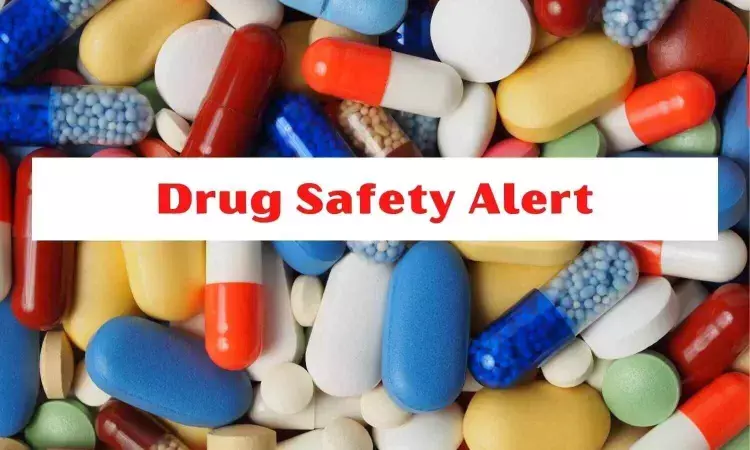- Home
- Medical news & Guidelines
- Anesthesiology
- Cardiology and CTVS
- Critical Care
- Dentistry
- Dermatology
- Diabetes and Endocrinology
- ENT
- Gastroenterology
- Medicine
- Nephrology
- Neurology
- Obstretics-Gynaecology
- Oncology
- Ophthalmology
- Orthopaedics
- Pediatrics-Neonatology
- Psychiatry
- Pulmonology
- Radiology
- Surgery
- Urology
- Laboratory Medicine
- Diet
- Nursing
- Paramedical
- Physiotherapy
- Health news
- Fact Check
- Bone Health Fact Check
- Brain Health Fact Check
- Cancer Related Fact Check
- Child Care Fact Check
- Dental and oral health fact check
- Diabetes and metabolic health fact check
- Diet and Nutrition Fact Check
- Eye and ENT Care Fact Check
- Fitness fact check
- Gut health fact check
- Heart health fact check
- Kidney health fact check
- Medical education fact check
- Men's health fact check
- Respiratory fact check
- Skin and hair care fact check
- Vaccine and Immunization fact check
- Women's health fact check
- AYUSH
- State News
- Andaman and Nicobar Islands
- Andhra Pradesh
- Arunachal Pradesh
- Assam
- Bihar
- Chandigarh
- Chattisgarh
- Dadra and Nagar Haveli
- Daman and Diu
- Delhi
- Goa
- Gujarat
- Haryana
- Himachal Pradesh
- Jammu & Kashmir
- Jharkhand
- Karnataka
- Kerala
- Ladakh
- Lakshadweep
- Madhya Pradesh
- Maharashtra
- Manipur
- Meghalaya
- Mizoram
- Nagaland
- Odisha
- Puducherry
- Punjab
- Rajasthan
- Sikkim
- Tamil Nadu
- Telangana
- Tripura
- Uttar Pradesh
- Uttrakhand
- West Bengal
- Medical Education
- Industry
Drug Safety Alert: Indian Pharmacopoeia Commission Flags ADR Linked To Tetracycline

New Delhi: The Indian Pharmacopoeia Commission (IPC), through its recently issued drug safety alert for the month of September, has revealed that the popular antibiotic Tetracycline is linked with adverse drug reactions (ADRs) named Fixed Drug Eruption (FDE).
In connection with the above, the Indian Pharmacopoeia Commission (IPC) has cautioned healthcare professionals to diligently monitor the potential occurrence of adverse drug reactions (ADRs) when administering tetracycline.
This came after a preliminary analysis of adverse drug reactions (ADRs) from the Pharmacovigilance Programme of India (PvPI) database.
Tetracycline is an antibiotic used to treat a wide variety of susceptible infections.
Tetracycline is a broad spectrum polyketide antibiotic produced by the Streptomyces genus of Actinobacteria. It exerts a bacteriostatic effect on bacteria by binding reversibly to the bacterial 30S ribosomal subunit and blocking incoming aminoacyl tRNA from binding to the ribosome acceptor site. It also binds to some extent to the bacterial 50S ribosomal subunit and may alter the cytoplasmic membrane causing intracellular components to leak from bacterial cells.
Tetracycline passively diffuses through porin channels in the bacterial membrane and reversibly binds to the 30S ribosomal subunit, preventing binding of tRNA to the mRNA-ribosome complex and thus interfering with protein synthesis.
The alert noted that Tetracycline is indicated for the treatment of Rocky Mountain spotted fever, typhus, Q fever, rickettsial pox, tick fever caused by Rickettsiae, respiratory tract infections caused by Mycoplasma pneumonia, Chlamydia infection, nongonococcal urethritis, chancroid, plague, tularemia, cholera, brucellosis, bartonellosis, granuloma inguinale, Haemophilus and Klebsiella infections, and psittacosis.
Following the preliminary analysis of adverse drug reactions (ADRs) from the PvPI database, it is reported that Tetracycline can lead to Fixed Drug Eruption (FDE).
A fixed-drug eruption (FDE) is a unique cutaneous adverse drug effect in the form of recurrent lesions at the same site after re-exposure to the offending agent.
Now, as per the issued drug safety alert, the following suspected drug is associated with the ADR, as given below:
S. No. | Suspected Drug | Indication | Adverse Drug Reaction |
Tetracycline | Tetracycline | Treatment of Rocky Mountain spotted fever, typhus, Q fever, rickettsial pox, tick fever caused by Rickettsiae, respiratory tract infections caused by Mycoplasma pneumonia, Chlamydia infection , nongonococcal urethritis, chancroid, plague, tularemia, cholera, brucellosis, bartonellosis, granuloma inguinale, haemophilus and kleibsella infections, psittacosis. | Fixed Drug Eruption |
In light of the above, the Indian Pharmacopoeia Commission, Ministry of Health & Family Welfare, has advised healthcare professionals, patients, and consumers to closely monitor the possibility of the above ADRs associated with the use of the above-suspected drugs.
Further, the safety alert added, "If such reaction is encountered, please report to the NCC-PvPI, IPC, by filling out the Suspected Adverse Drug Reactions Reporting Form/Medicines Side Effect Reporting Form for Consumer (http://www.ipc.gov.in), through the Android Mobile App "ADR PvPI App" and PvPIHelpline No. 1800-180-3024 (Toll-Free).
To view the official notice, click the link below:
Mpharm (Pharmacology)
Susmita Roy, B pharm, M pharm Pharmacology, graduated from Gurunanak Institute of Pharmaceutical Science and Technology with a bachelor's degree in Pharmacy. She is currently working as an assistant professor at Haldia Institute of Pharmacy in West Bengal. She has been part of Medical Dialogues since March 2021.
Dr Kamal Kant Kohli-MBBS, DTCD- a chest specialist with more than 30 years of practice and a flair for writing clinical articles, Dr Kamal Kant Kohli joined Medical Dialogues as a Chief Editor of Medical News. Besides writing articles, as an editor, he proofreads and verifies all the medical content published on Medical Dialogues including those coming from journals, studies,medical conferences,guidelines etc. Email: drkohli@medicaldialogues.in. Contact no. 011-43720751


